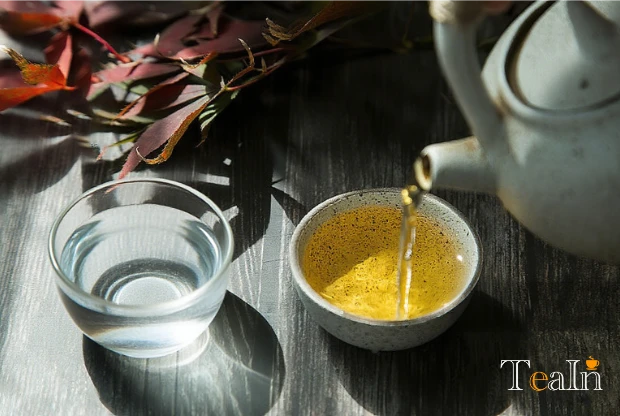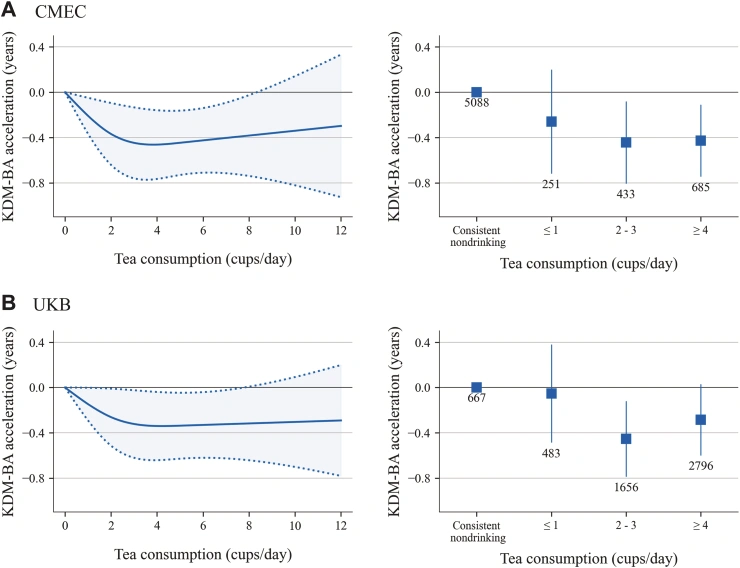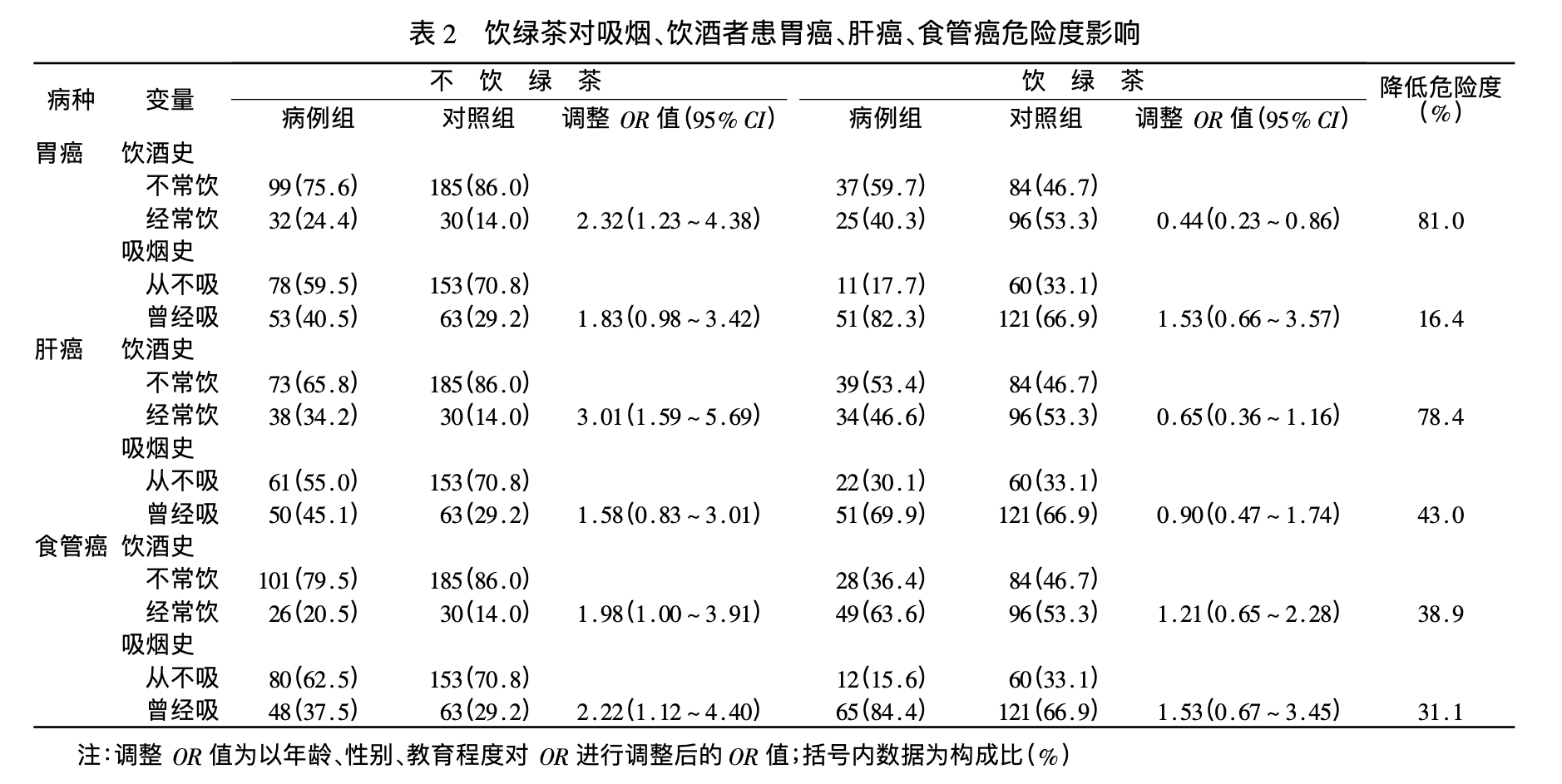Tea VS Water: Which Is Better for Long-Term Health?

There’s a well-known saying: “Humans can go days without food, but not a single day without water.” Water, as the most basic daily beverage, remains a top choice for health-conscious people. Meanwhile, in tea-rich regions of China like Fujian and Yunnan, another proverb prevails: “One can live three days without grain, but not a day without tea.” Tea drinking has long been deeply woven into local life. Today, from middle-aged and elderly people who never leave home without a thermos to young adults pursuing sugar-free lifestyles and enjoying tea tasting, the question “Which beverage is better for long-term health?” has become a hot topic of daily discussion. Between long-term tea consumption and long-term water intake, which one better safeguards health? What unique health benefits does each offer? This guide will help you find your answer.
I. Long-Term Water Intake: The Fundamental Guarantee for Sustaining Health
Water is the core element supporting the normal physiological functions of the human body. Adults lose up to 2,500 ml of water daily through breathing, sweating, urination, and other processes. Numerous studies in modern medicine and nutrition have fully confirmed that long-term adherence to drinking Water and maintaining adequate hydration provides strong support for health in multiple ways.
1. Boosts Metabolism and Maintains Optimal Bodily Functions
Approximately 60% of the human body is composed of water, and sufficient water intake is a key prerequisite for stable metabolic operation. A study published in The Journal of Clinical Endocrinology & Metabolism showed that within 10 minutes of drinking 500 ml of water, the human metabolic rate increases significantly, peaking at around 30 minutes. This elevated metabolic level can last for about an hour, helping the body maintain optimal functional status and keeping people energetic in daily life.
2. Protects Heart Health and Reduces Disease Risk
Water also plays a crucial role as a “guardian” of heart health. A large-scale follow-up study published in European Heart Journal observed a large number of participants over the long term and found that people who maintained adequate daily water intake not only had a significantly lower risk of heart failure than those who drank insufficient water but also experienced a slower decline in heart function. The study further noted that when serum sodium levels (normal range: 136-146 mmol/L) are high, adequate water intake can effectively lower these levels, reduce the burden on the heart, and thus decrease the risk of heart failure—building a solid “protective barrier” for heart health.
3. Aids in Relieving Minor Ailments and Addressing Common Health Issues
Water also plays a positive auxiliary role when the body experiences minor discomfort. For example, during a cold or fever, the body loses a great deal of water through sweating and breathing, making dehydration likely. Drinking warm Water at this time not only replenishes the lost body fluids promptly but also helps regulate body temperature and alleviate fever-related discomfort.
In addition, numerous urological guidelines clearly state that adequate water intake is the primary non-pharmaceutical method for preventing urinary tract stones. Water dilutes the concentration of stone-forming substances in urine, such as calcium, oxalic acid, and uric acid, reducing the likelihood of these substances forming crystals and accumulating in the urinary tract. This fundamentally lowers the risk of urinary tract stone formation.
Constipation is also closely linked to insufficient water intake. Sufficient water softens stool, promotes intestinal peristalsis, and improves defecation smoothness. For individuals with functional constipation, clinicians usually recommend increasing dietary fiber intake while drinking an adequate amount of Water to enhance the effectiveness of constipation relief.
II. Long-Term Tea Consumption: A Natural Beverage with Both Flavor and Health Benefits
Tea, along with coffee and cocoa, is ranked among the world’s three major non-alcoholic health beverages. Its unique taste and rich nutritional components have won it the love of many consumers. Tea contains a variety of natural active substances, such as tea polyphenols, caffeine, and theanine—these are the components that endow tea with its rich health benefits.
1. Refreshes the Mind and Gently Relieves Fatigue
When people feel exhausted and struggle to concentrate, drinking a cup of tea often helps them quickly regain focus. The key “contributor” behind this effect is caffeine in tea. The caffeine content in tea is as high as 2%-4%, a proportion higher than that in coffee beans (1.1%-2.2%).
However, compared to drinking coffee, tea consumption rarely causes discomfort such as palpitations. On one hand, the caffeine content in coffee (obtained by directly filtering ground coffee beans) is higher. On the other hand, caffeine is released more slowly in tea, resulting in a gentler refreshing effect. More importantly, theanine—unique to tea—is known in the scientific community as “the natural sedative of the 21st century.” It can reduce the stimulating effect of caffeine, providing a refreshing boost while alleviating anxiety, improving sleep quality, and preventing overstimulation of the nervous system. This allows people to stay focused without feeling overly tense.
2. Resists Radiation and Builds a Protective Barrier for the Body
With the rapid development of technology, people are exposed to various electronic devices such as computers and mobile phones for long periods every day, making radiation exposure inevitable. Radiation can lead to a decrease in white blood cell count in the human body. A study conducted in Taiwan, China, confirmed that tea has a positive effect on resisting radiation. The study showed that after cancer patients received radiation therapy, drinking tea significantly increased their reduced white blood cell count by 90%. This effect is mainly attributed to tea polyphenols—the “natural antioxidants” in tea. They not only effectively eliminate free radicals generated by radiation in the body but also enhance the radiation resistance of DNA, building a “protective shield” for the body against radiation damage.
3. Slows Aging and Helps Maintain Youthful Vitality
Free radicals are one of the key factors contributing to human aging. When excessive free radicals accumulate in the body, they attack healthy cells and tissues, leading to the degradation of bodily functions and skin aging. Tea polyphenols, however, have a strong ability to scavenge free radicals. They can effectively counteract the damage caused by free radicals to the body, thereby helping to slow down the aging process.
A relevant study published by a research team from the West China School of Public Health, Sichuan University, further confirmed that people who drink 3 cups of tea daily (using approximately 6-8 grams of tea leaves) have the slowest biological aging process. This conclusion provides solid scientific evidence for the health benefits of tea.

4. Helps Prevent Cancer and Reduces Disease Risk
Cancer prevention is one of the most frequently mentioned benefits of tea. In Japan, tea drinking has even been incorporated into the national cancer prevention program. A controlled study published in Chinese Journal of Epidemiology showed that drinking green tea can reduce the risk of digestive system cancers in people who smoke or drink alcohol.
During the study, which involved thousands of participants, it was found that both current and former smokers, as well as current and former drinkers, had a significantly lower risk of developing three types of digestive system cancers (gastric cancer, liver cancer, and esophageal cancer) if they drank green tea compared to those who did not. Among people who both drank alcohol and persisted in drinking green tea, the risk of gastric cancer, liver cancer, and esophageal cancer was reduced by 81%, 78.4%, and 38.9% respectively—showing particularly prominent cancer-preventive effects.

III. The Core of Healthy Drinking: Focus on “Scientific Consumption” Rather Than “Choosing One or the Other”
Both Water and tea offer rich health benefits and are excellent choices for daily health maintenance. However, their effects should not be overstated. The health benefits of these two beverages are mainly reflected in “disease prevention” and relieving minor bodily discomfort—they do not have the effect of directly treating diseases. If you experience obvious physical discomfort, seeking medical attention promptly is the most responsible approach to your health. Never rely solely on drinking water or tea in the hope of curing an illness.
At the same time, whether drinking Water or tea, it is essential to adhere to the principles of “moderation” and “scientific consumption.” Otherwise, the opposite effect may occur, harming your health. For example, there was a news report about a 52-year-old Ms. Wang who drank 7 liters of water in just 4 hours. She was eventually rushed to the hospital due to “water intoxication” and exhibited symptoms such as nausea, vomiting, and muscle cramps. This case reminds us that excessive water intake in a short period can significantly increase the burden on the kidneys, disrupt the body’s fluid balance, and disturb the normal composition of body fluids—ultimately triggering a health crisis.
There are also “taboos” to note when drinking tea. Drinking tea on an empty stomach can easily cause “tea intoxication” symptoms such as dizziness, palpitations, and cold sweats. “Hot tea” just brewed is extremely hot; drinking it in a hurry repeatedly irritates the esophageal mucosa, which may increase the risk of esophageal cancer over the long term. Furthermore, long-term consumption of overly strong, bitter-tasting tea can lead to excessive fluoride intake, which increases the burden on the kidneys and, in severe cases, may even cause “fluorosis.”
In conclusion, there is no need to overthink the choice between long-term Water intake and tea consumption. Water is the basic beverage for sustaining life activities, while tea is a high-quality option that combines flavor and health benefits. The two can be consumed in combination according to personal needs and preferences. The key is to master scientific drinking methods and control the amount consumed. Only in this way can they truly become “good helpers” for safeguarding your health.
References
[1] Dmitrieva, N. I., et al. (2022). Middle age serum sodium levels in the upper part of normal range and risk of heart failure. European Heart Journal. []
[2] Wang, Y. F. (2014, March). On the health benefits of tea: Tea's radiation protection effect. TEA TIMES (Famous Experts Column/Health Preservation). []
[3] Xiang, Y., Xu, H., Chen, H. X., Tang, D., Huang, Z. T., Zhang, Y., et al. (Year of publication, if available). Tea consumption and attenuation of biological aging: A longitudinal analysis from two cohort studies. The Lancet [Specify the sub-journal, e.g., The Lancet Public Health or The Lancet Healthy Longevity]. [https://pubmed.ncbi.nlm.nih.gov/38075587/]
[4] [Lead author's surname, initial(s) if available]. (Year of publication, if available). A case-control study on green tea consumption reducing the incidence of digestive system cancers in smokers and drinkers. Chinese Journal of Epidemiology. [http://chinaepi.icdc.cn/zhlxbx/ch/reader/create_pdf.aspx?file_no=20030312&flag=1&journal_id=zhlxbx&year_id=2003]
